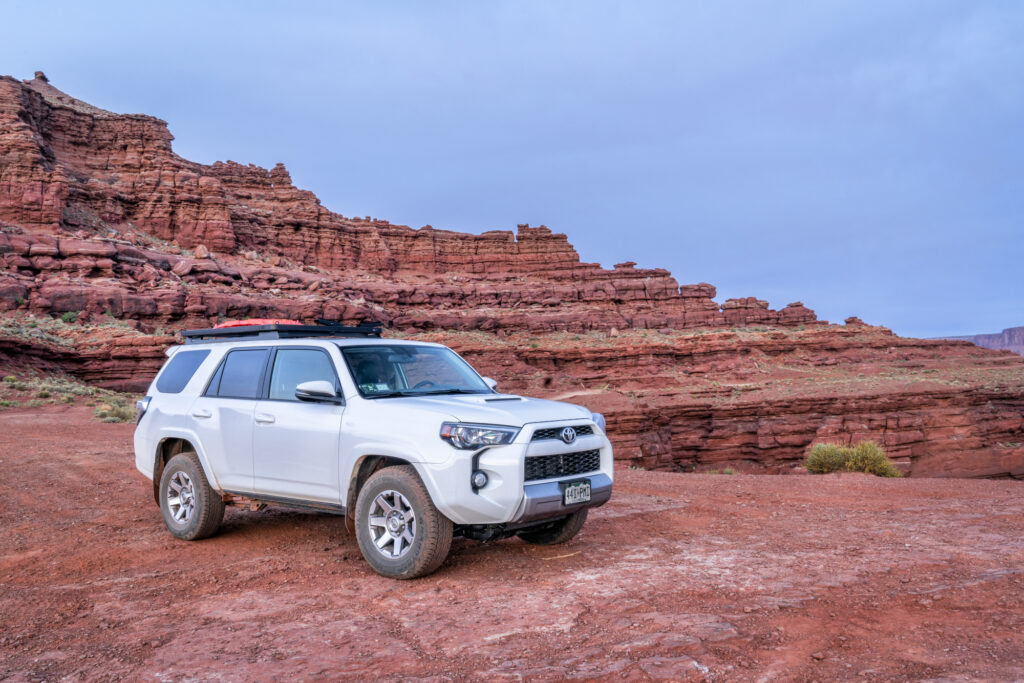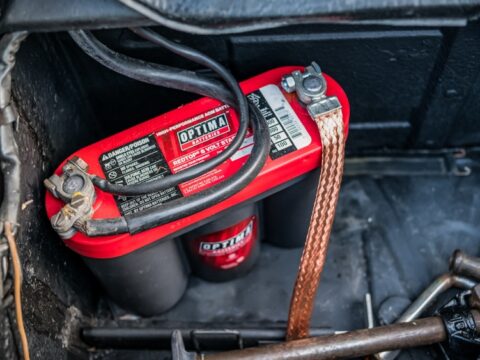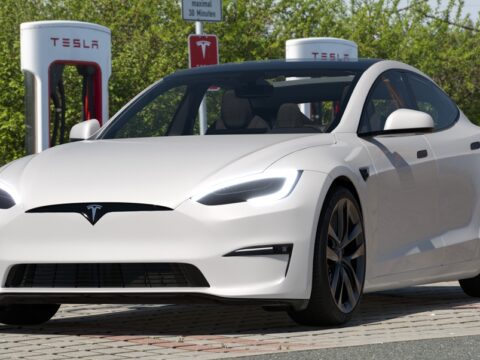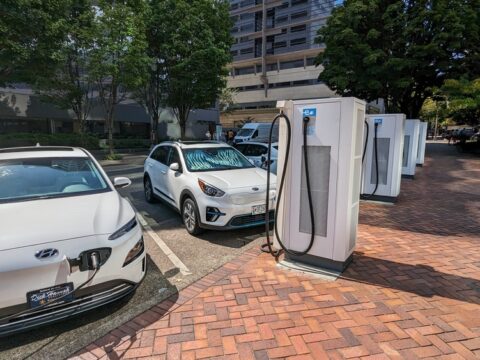Toyota is known for its durable and reliable cars, and the 4Runner lives up to the expectations. Since its inception, the 4Runner has had a long and well-reviewed impact on Toyota’s SUV lineup.

But, like any vehicle, owners might find themselves experiencing the same common problems. Indeed, certain generations of the 4Runner have serious issues that could affect their lifespan and overall performance. Today, we’ll take a close look at the Toyota 4Runner and its best and worst years.
Contents
Toyota 4Runner Overview
Toyota unveiled the first 4Runner in 1984. Originally little more than a converted short-bed pickup, it has evolved over the years to become one of the most popular SUVs on the market.
There have been five generations of 4Runner. The 5th launched in 2009 and received a facelift to modernize it in 2013.
Toyota 4Runner Reliability
Other than a few poorly designed models throughout the years, the 4Runner is one of the most consistent SUVs on the market.
In fact, since its first production in the 1980s, it has garnered praise for its build quality and reliability.
Its body-on-frame approach affords it excellent stability, sturdy construction, and robustness. Owners have often also praised the durability of the 4.0L V6 engine.
Unsurprisingly, the 4Runner can be driven for decades and hundreds of thousands of miles, giving the model a reputation for being a cost-effective, long-term investment.
Toyota 4Runner Life Expectancy
Thanks to its reliability and impressive engine, you can drive a Toyota 4Runner for decades. You’ll find countless stories of owners with over 200,000 miles on their 4Runners. If you take care of your vehicle and have regular checkups, you could even join the 300,000-mile club.
The one exception to the impressive longevity of the 4Runner is the 2003 to 2009 4th generation. This model is prone to corrosion, which might lead to dangerous problems with the vehicle.
Common Problems with Toyota 4Runner
No matter how well designed or built, all cars eventually experience some troubles. Over the years, these have been the most common bugbears owners found with their Toyota 4Runners.
Structural and Corrosion
Rust and corrosion are major concerns for nearly every Toyota 4Runner owner. You’ll find many complaints about rust and corrosion of the frame and underbody of the 4Runner.
The corrosion is often premature. It also accelerates, making the vehicle deteriorate and potentially dangerous to drive.
Owners that live in snowy or rainy climates have been urged to regularly clean and maintain their 4Runners to avoid corrosion. Salted roads can also accelerate corrosion.
Corrosion is, unfortunately, common in all 4Runner model years, but 2003-2009 are known to be the most susceptible.
Airbag-Related
A faulty airbag is more than an annoyance. It’s life-threatening. Users reported that some 4Runners failed to deploy the airbag during a crash. That malfunction led to owners receiving neck injuries, puncture wounds, and fractures.
Other owners have reported the airbag light won’t turn off. If the airbag light is on while driving, your airbag might be deactivated, or there is a malfunctioning sensor in the vehicle.
Melting and Cracked Dashboards
Toyota has had issues with melting and cracked dashboards with several models. With the 4Runner, excessive heat and sunlight have caused dashboards to melt or crack. You may notice at first your dash is sticky if you have this problem.
The company hasn’t authorized a recall to remedy the matter. Instead, it put out an enhanced 10-year warranty replacement for melted dashboards, extending to the purchase date of the original sale.
Braking System Problems
Other complaints have related to the braking system:
- Rotors and brake pads wear out prematurely.
- Calipers need replacement too often.
- The anti-lock brake feature malfunctions.
- Brake rotors cause severe vibration in the vehicle.
Toyota 4Runner Years to Avoid
The above issues are common to nearly every model year. But, some Toyota 4Runners had more problems than others and are best to be avoided.
2003-2009 Fourth-Generation 4Runner
The fourth-generation Toyota 4Runner runs between the years 2003 and 2009. During this period, the vehicle received a new body and chassis changes. Unfortunately, the redesign introduced or aggravated several shortcomings for the brand.
Corrosion is the biggest challenge for 4th-generation 4Runners. Owners complained that the frame rusted straight through, while excessive rusting also beset the undercarriage.
In addition, this model year has experienced melting dashboards and brake system problems.
2001-2002 Third-Generation 4 Runner
The corrosion and frame rusting associated with 4Runners started with the 2001-2002 model. Owners noted the frame, bumpers, and undercarriage were all prone to rusting out.
Other issues were observed with the suspension, drivetrain, and engine.
1990-1995 Second-Generation 4Runner
SUVs in the 80s and 90s were not known for their stellar safety ratings. In that context, it’s not surprising to learn the second-generation 4Runner received a one-star frontal crash rating from the NHTSA. Rollovers were commonplace with many SUVs, and the 4Runner was no exception.
Elsewhere, the model had failing head gaskets, instances of rust, and sagging suspension.
1988-1989 First-Generation 4Runner
While considered a classic, it’s best to avoid older first-generation 4Runners. Corrosion, worn-out parks, leaks, and other common old-age challenges persist in the first-generation 4Runner.
Still, this generation can be reliable, and models in great condition have been known to reach premium prices.

Best Years for Toyota 4Runner
While the 4Runner had some growing pains, it has given the motor industry some great models. Below are the best model years for 4Runner if you are in the market for a used SUV.
2017 Fifth-Generation 4Runner
The 2017 4Runner fixed many of the issues found in older models. Newer models are less prone to corrosion but are untested over long periods.
An airbag recall has been the only major concern for the fifth-generation model. It affected 67 million vehicles across 24 automotive manufacturers.
2008-2009 Fourth-Generation 4Runner
Toyota’s fourth-generation 4Runner is the only model offering a V8 engine, making it ideal for owners that need extra towing ability and horsepower. The V8 is Toyota’s legendary 2UZ engine, also found in their Lexus line of vehicles.
By 2008, the fourth generation received a modernized facelift, and corrosion was much less commonplace.
You’ll find countless reviews praising how the 2008-2009 generation is the best and most reliable of the 4Runner name.
1999-2000 Third-Generation 4Runner
The third-generation 4Runner underwent numerous changes. Toyota redesigned the interior and improved the exterior styling of the vehicle. 1999 also introduced an improved four-wheel drive system that made wet or snowy climates safer.
While the 1999-2000 4Runner doesn’t experience noticeable rust, corrosion still affects this generation. Moreover, it might be hard to find a third-generation without some corrosion due to its age.
1994-1995 Second-Generation 4Runner
The 1994 4Runner significantly enhanced the safety standards of the SUV by adding side-impact beams and driver and passenger airbags.
During this period, the 4Runner was a popular vehicle due to its reliability and durability. Many reviews even claimed the 4Runner had to be virtually “bulletproof” thanks to its sturdy frame. As with the subsequent third generation, Toyota paid particular attention to the overall styling and comfort of the vehicle.
While it lacks the more luxury features of later iterations, the 4Runner represents a huge leap forward and is highly sought after. Indeed, it can fetch a premium as a used car.
Should You Buy a Toyota 4Runner?
So, now you have the lowdown on the 4Runner, are you planning on buying a new or used model? Most used 4Runners are certainly a worthwhile buy, with the name being one of the most dependable in the Toyota lineup.
Excluding a few bad years, the 4Runner has consistently delivered thanks to its build quality and solid performance. Each generation has been noted for its overall reliability, steady off-road performance, and ample space.That reputation has led to it tending to have a high resale value. So, a bargain may prove to be elusive.
Toyota 4Runner FAQs
Do you still have questions about the Toyota 4Runner and its problems? Below are some of the most common questions asked by readers and owners.
Is Toyota redesigning the 4Runner?
The current 4Runner model is getting a redesign. Toyota announced plans for a redesigned 4Runner for 2023. You should expect to see the new sixth-generation hit the market sometime in 2023 with a 2024 model year.
Which 4Runner has the best engine?
The latest 4Runner offers an excellent 4.0L V-6 engine. The engine outperforms previous models and can produce 270hp and 278 ft-lb of torque.
But many owners love the V8 engine offered for the 2008-2009 model year. This 4.7L V-8 produced 260HP and 306 ft-lb of torque, making the SUV an excellent choice for towing and off-road driving.
What kind of engine does a Toyota 4Runner have?
Released in 1983, the first-generation 4Runner had a relatively modest 2.4L L22R engine. The engine evolved, and the latest model features a 270-hp, 4.0L V6 engine.
What year 4Runner has rust problems?
Many owners of 2003-2009 Toyota 4Runners experience rusting with their vehicles. Premature corrosion of the vehicle’s frame also led to concerns about overall safety and stability.














